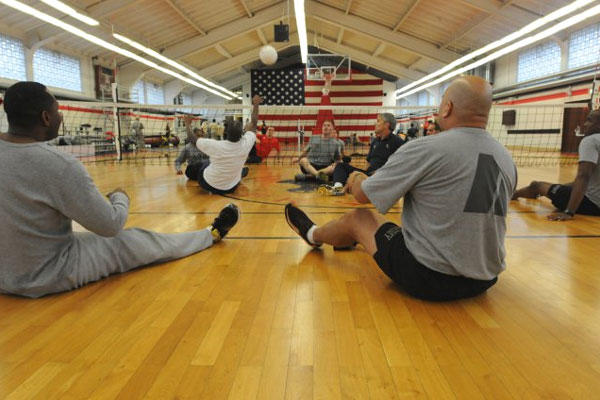Congress has rushed to protect the medically retired and survivor benefit recipients from the cap on annual cost-of-living adjustments it approved only a few weeks ago for all "working age" military retirees.
The lightning quick "COLA fix," part of a massive "omnibus" funding bill for 12 federal departments, still leaves most military retirees under age 62 with future COLAs trimmed by one percent below the annual inflation rate, an erosion of retirement value set to begin in January 2016.
The fix also creates a disparity in COLA protection between separate groups of disabled retirees, critics contend. It won't affect retirees with conditions diagnosed and rated in service, even if the rating is as low as 0 or 10 percent for those with 20 or more years served. Full COLAs are being restored for anyone medically retired, so-called Chapter 61 retirees.
The COLA cap remains for retirees under 62 whose service-connected disability ratings came later from the Department of Veterans Affairs (VA). These VA-rated disabled retirees will continue to receive full COLAs on disability compensation but COLAs would be on any military retired pay they draw. [Only in the last decade did Congress phase out a long-time ban on "concurrent receipt" of both payments for many disabled retirees.]
Retired Army Lt. Col. Michael Parker, an advocate for disabled retirees, said the COLA disparity from the quick fix in the omnibus bill would create "huge inequities." He gave a few examples.
"A fully employable Chapter 61 disability retiree rated at 0 percent [disabled] by DoD," which occurs when a condition is recognized but not compensable, "will not be subject to COLA reduction," Parker explained.
Yet an unemployable length-of-service retiree rated by VA, even if rated 100-percent disabled, would see the COLA cap impact their retired pay.
And so would a length-of-service retiree who sustains a severe non-service connected disability in retirement, for example, if paralyzed in a car crash, Parker said.
Influential lawmakers, urged on by military associations and veterans groups, are still promising to roll back the COLA cap for all retirees before it is to begin in two more years. Still to be determined is whether the quick fix to protect the medically retired takes critical wind out of those sails.
Obstacles to full repeal include support for the COLA cap from Defense Secretary Chuck Hagel, the Joint Chiefs of Staff, Rep. Paul Ryan (R-Wis.) chairman of the House Budget Committee, and lower profile lawmakers from both parties who see restoring this trim to military retirement as less critical than other budget needs such weapon modernization programs, avoiding higher taxes on the wealthy, or protecting other federal entitlements and assistance programs for the young, the poor and the aged.
Bitter disagreement between Republicans and Democrats also remains likely over how to pay for full repeal of the retiree COLA cap. The cost of cap relief for the medically retired and survivors is $573 million over 10 years. House-Senate negotiators on the omnibus bill didn't worry about finding offsets for those lost savings because no retirement dollars would be saved before 2016 anyway, said an appropriations committee staff member.
But full repeal to protect all retirees under 62 would slice another $5.7 billion from the bipartisan budget deal struck last month between Ryan and Sen. Patty Murray (D-Wash.), chairman of the Senate Budget Committee. Those dollars will have to be offset, either through entitlement cuts, by raising taxes or a combination. Will enough members of Congress agree to such a compromise or does the majority silently side with Ryan that military retirement, designed in an earlier era, is too generous and costly to sustain?
Sen. Barbara Mikulski (D-Md.), chairman of the Senate Appropriations Committee, in announcing omnibus bill details, said targeted COLA cap relief was a priority for her and her House counterpart, Rep. Hal Rogers (R-Ky.).
"We were deeply concerned about the cost-of-living issue related to military retirees of working age who were disabled or were survivors…The Consolidated Appropriations Act of 2014 fixes that problem. It is limited in scope [to] the neediest of the needy," Mikulski said.
She didn't say she supports full COLA cap repeal, only that she hopes the ongoing Military Compensation and Retirement Modernization Commission will recommend a more "comprehensive approach" to reform.
One of many lawmakers who say the omnibus COLA fix "doesn't go far enough," is Rep. Jeff Miller (R-Fla.), chairman of the House Veterans Affairs Committee. In December he introduced H.R. 3790, a bill to repeal the COLA cap for all military retirees. Seven House colleagues and four senators have introduced nearly identical bills, though some of them suggest offsets to pay for it that members of the other party openly reject.
Miller's bill has 107 co-sponsors, including 37 Democrats, in part because he doesn't include a way to pay for full COLA cap repeal.
"The bill was intentionally left without offsets to garner united support," Miller said. Given widespread bipartisan support, he said, "we are hopeful Democrats and Republicans can [agree on how] to pay for the bill."
The fight over COLAs won't end until fully restored for all retirees, said retired Air Force Col. Mike Hayden, director of government relations for Military Officers Association of America. He warned, "This breach of faith is impacting the morale of those currently serving."
Retired senior officers are divided on the matter, however. Several retired four-stars including former Marine Commandant Gen. James L. Jones, former deputy commander of U.S. European Command Gen. Charles F. (Chuck) Wald and former commander of U.S. Naval Forces, Europe, Adm. Gregory Johnson, all of them members of the Bipartisan Policy Center in Washington D.C., said last month they support the COLA cap.
In a written statement, these officers joined with retired Marine Maj. Gen. Arnold Punaro, a long-time proponent of retirement reform, in blaming rising personnel costs for "starting to crowd out other important investments that support training, readiness and modernization. This [COLA cap] plan is an important first step in tackling those costs."
Send comments to Military Update, P.O. Box 231111, Centreville, VA, 20120, email milupdate@aol.com or twitter: Tom Philpott @Military_Update










